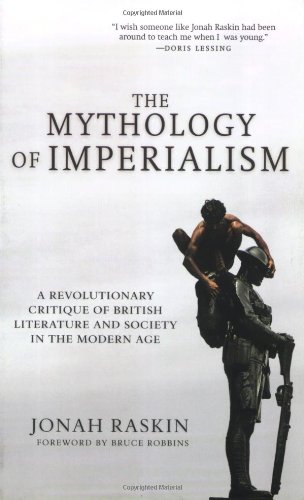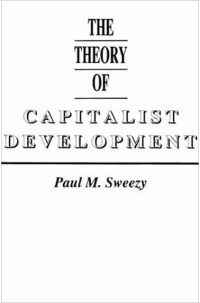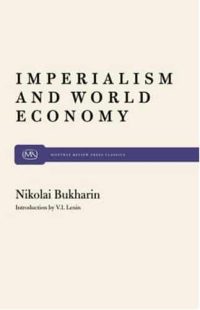The Mythology of Imperialism: A Revolutionary Critique of British Literature and Society in the Modern Age
$19.95
Paperback, 384 pages
ISBN-13: 978-1-58367-186-3
Released: August 2009
“We, the readers and students of literature, have been hijacked. The literary critics, our teachers, those assassins of culture, have put us up against the wall and held us captive.” So begins Jonah Raskin’s The Mythology of Imperialism. When first published in 1971, this book was nothing short of a call to arms, an open revolt against the literary establishment. In his critique of five well–known British writers—Joseph Conrad, Rudyard Kipling, D. H. Lawrence, E. M. Forster, and Joyce Cary—Raskin not only developed the model for a revolutionary anti–imperialist criticism, but, through this book’s influence on Edward Said, helped usher in the field of postcolonial studies.
Nearly four decades later, The Mythology of Imperialism is all the more relevant. Its readings of British literature still offer bold and original insight into the relationship between text, artist, and historical context. But, perhaps more crucially, this book sends a revolutionary message to all readers and students of literature. Against much of today’s post-colonialism—diluted by postmodern obfuscation and largely detached from its historical roots—Raskin locates the center of his anti–imperialist criticism in the ahistnti–imperialist struggle itself and takes his cues not from “the assassins of culture” in the academy but from the national liberation movements of his time.
Written with absorbing passion and machete–sharp analysis, this new edition of The Mythology of Imperialism includes the original text, a new introduction and afterword by the author, and a preface by Bruce Robbins.
The Mythology of Imperialism I have read, used, and considered to be one of the genuinely important handful of books on modern literature.
—Edward Said
I wish someone like Jonah Raskin had been around to teach me when I was young: it is his respect for what a young person is going through at a particular time, the stage of his/her growth that is valuable.
—Doris Lessing, novelist and Nobel Laureate
The Mythology of Imperialism is as solid as granite; it should be around for a long, long time. It is great reading.
—Maxwell Geismar
. . . perhaps even more relevant today than when it first appeared almost forty years ago. Its astute dissection of empire through an analysis of the collusive fictions of early twentieth century novelists established a new standard for the critique of a system of economic domination that was only beginning to fall apart at the time. In the years since its appearance, an entire generation of scholars proceeded to bury the analytic method Raskin was able to establish in his book under an avalanche of ahistorical, pseudo–left academic verbiage. Imperialism, taking note of this new–speak, redesigned itself as ‘free market capitalism.’ We therefore need the no–nonsense immediacy of Raskin’s methods of analysis now more than ever to help us decipher the ‘improved’ twenty–first century rhetoric of imperialist economics.
—Bram Dijkstra, professor emeritus, UC San Diego, author of Idols of Perversity, Evil Sisters, and American Expressionism: Art and Social Change, 1920-1950
Jonah Raskin teaches First Amendment law and journalism at Sonoma State University in Northern California. He is the author of The Radical Jack London and Out of the Whale, as well as biographies of Abbie Hoffman and Allen Ginsberg.
Bruce Robbins is Professor of English and Comparative Literature at Columbia University and author of The Servant’s Hand.
Publication Date: August 2009
Number of Pages: 384
Paperback ISBN: 9781583671863
Related products
-
Monthly Review Volume 2, Number 3 (July 1950) [PDF]
$10.00 Add to cart -
Monthly Review Volume 1, Number 11 (March 1950) [PDF]
$10.00 Add to cart -
Monthly Review Volume 1, Number 7 (November 1949) [PDF]
$10.00 Add to cart -
Monthly Review Volume 1, Number 2 (June 1949) [PDF]
$10.00 Add to cart -
The Theory of Capitalist Development: Principles of Marxian Political Economy
$20.00 Select options This product has multiple variants. The options may be chosen on the product page -
Imperialism and World Economy
$15.00 Select options This product has multiple variants. The options may be chosen on the product page

![Monthly Review Volume 2, Number 3 (July 1950) [PDF]](https://monthlyreview.org/wp-content/uploads/2015/09/Monthly Review Volume 2, Number 3 (July 1950) [PDF].jpg)
![Monthly Review Volume 1, Number 11 (March 1950) [PDF]](https://monthlyreview.org/wp-content/uploads/2015/09/Monthly Review Volume 1, Number 11 (March 1950) [PDF].jpg)
![Monthly Review Volume 1, Number 7 (November 1949) [PDF]](https://monthlyreview.org/wp-content/uploads/2015/09/Monthly Review Volume 1, Number 7 (November 1949) [PDF].jpg)
![Monthly Review Volume 1, Number 2 (June 1949) [PDF]](https://monthlyreview.org/wp-content/uploads/2015/09/Monthly Review Volume 1, Number 2 (June 1949) [PDF].jpg)

